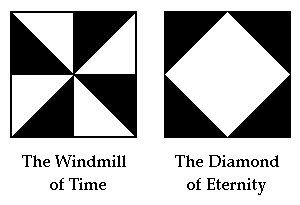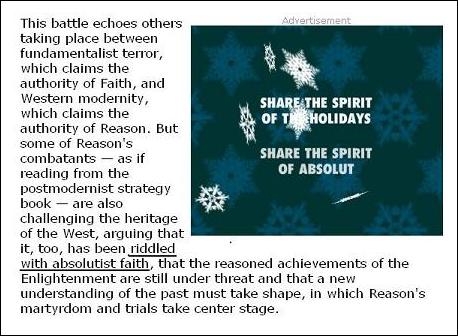|
Excerpt from a Log24 post of May 2, 2003 Though truth may be very hard to find in the pages of most books, the page numbers are generally reliable. This leads to the following Zen meditations. From a review of the film “The Terminator”:
From a journal note on religion, science, and the meaning of life written in 1998 on the day after Sinatra died and the Pennsylvania lottery number came up “256”:
From Michael Crichton’s Rising Sun John Connor (aka J. C.) offers the following metaphysical comment on the page number that appears above his words (256):
Connor is correct. The number 256 does indeed seem to be, and indeed it seemed to be again only yesterday evening, when the Pennsylvania lottery again made a metaphysical statement. Our Zen meditation on the trustworthiness of page numbers concludes with another passage from Rising Sun, this time on page 373:
Here J. C. offers another trenchant comment on his current page number. The metaphysical significance of 373, “the eternal in the temporal,” is also discussed in the Buddhist classic A Flag for Sunrise, by Robert Stone (Knopf hardcover, 1981) … on, of course, page 373. |
Related graphic art —

This is from a Log24 search, "Windmill + Diamond."








